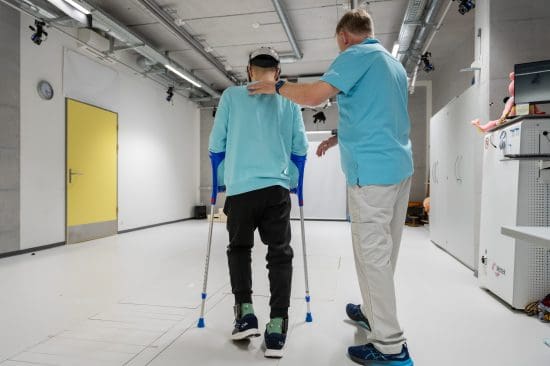Life after sepsis
Life after surviving sepsis can bring unexpected challenges, both physical and emotional. After surviving the acute illness, many survivors struggle with lingering effects such as fatigue, cognitive impairment, chronic pain and emotional stress.
The road to recovery is often complex, and each path is unique. To regain quality of life and well-being, it is important to understand and treat the long-term effects of sepsis.

Recovery and aftercare following sepsis
Recovering from sepsis can be a long and difficult road, especially for those who were severely ill. Many sepsis survivors, especially those with pre-existing conditions, may also face long-term health problems.
Long-term effects in children
Children who survive sepsis can also experience negative long-term effects, developmental delays, cognitive impairment and physical disabilities. Healthcare providers must recognize these long-term effects to ensure that survivors receive the appropriate care and support for their recovery.

Post-ICU syndrome (PICS)
Post-ICU syndrome (PICS) refers to a range of physical, cognitive and mental health problems that can affect people who have survived a stay in an intensive care unit (ICU). It can develop as a result of critical illness and intensive care treatment and often occurs in survivors of sepsis, COVID-19 or other serious illnesses. The main features of PICS are:
- Physical symptoms: Muscle weakness, fatigue, chronic pain and restricted mobility
- Cognitive symptoms: Memory disorders and concentration difficulties
- Mental health problems: Anxiety, depression, post-traumatic stress disorder (PTSD) and sleep disorders.
The treatment of post-intensive care syndrome (PICS) requires a multidisciplinary approach (rehabilitation, psychological and/or psychosocial support) to address the multiple effects of this syndrome and help patients regain their quality of life.
Post-sepsis syndrome
Post-sepsis syndrome (PSS) affects up to 50 percent of sepsis survivors and can include chronic fatigue, sleep disturbances, persistent pain, impaired organ function, recurrent infections and cognitive problems such as depression, memory problems and reduced emotional resilience.
Physical effects
- Impaired heart, kidney or liver function
- Chronic fatigue
- Breathing difficulties and shortness of breath
- Muscle weakness and chronic pain
- Visual and speech problems
- Hair loss
- Poor appetite
Psychological consequences
- Depression and anxiety
- Sleep disorders, nightmares and hallucinations
- Post-traumatic stress disorder (PTSD) and flashbacks
- Impaired cognitive functions, memory loss
- Mood swings
Guide “Life after sepsis”
The European Sepsis Alliance (ESA) guide “Life after sepsis” provides valuable information and support for sepsis survivors and their families. It explains the potential long-term consequences of sepsis, such as physical, emotional and cognitive challenges, and offers practical advice on recovery, rehabilitation and coping with post-sepsis syndrome. The guide is available in several languages and can be downloaded from the ESA website.

Sepsis Survivors – Video (English only)
You are currently seeing a placeholder. To access the actual content, click on the button below. Please note that data will be passed on to third-party providers.
More information